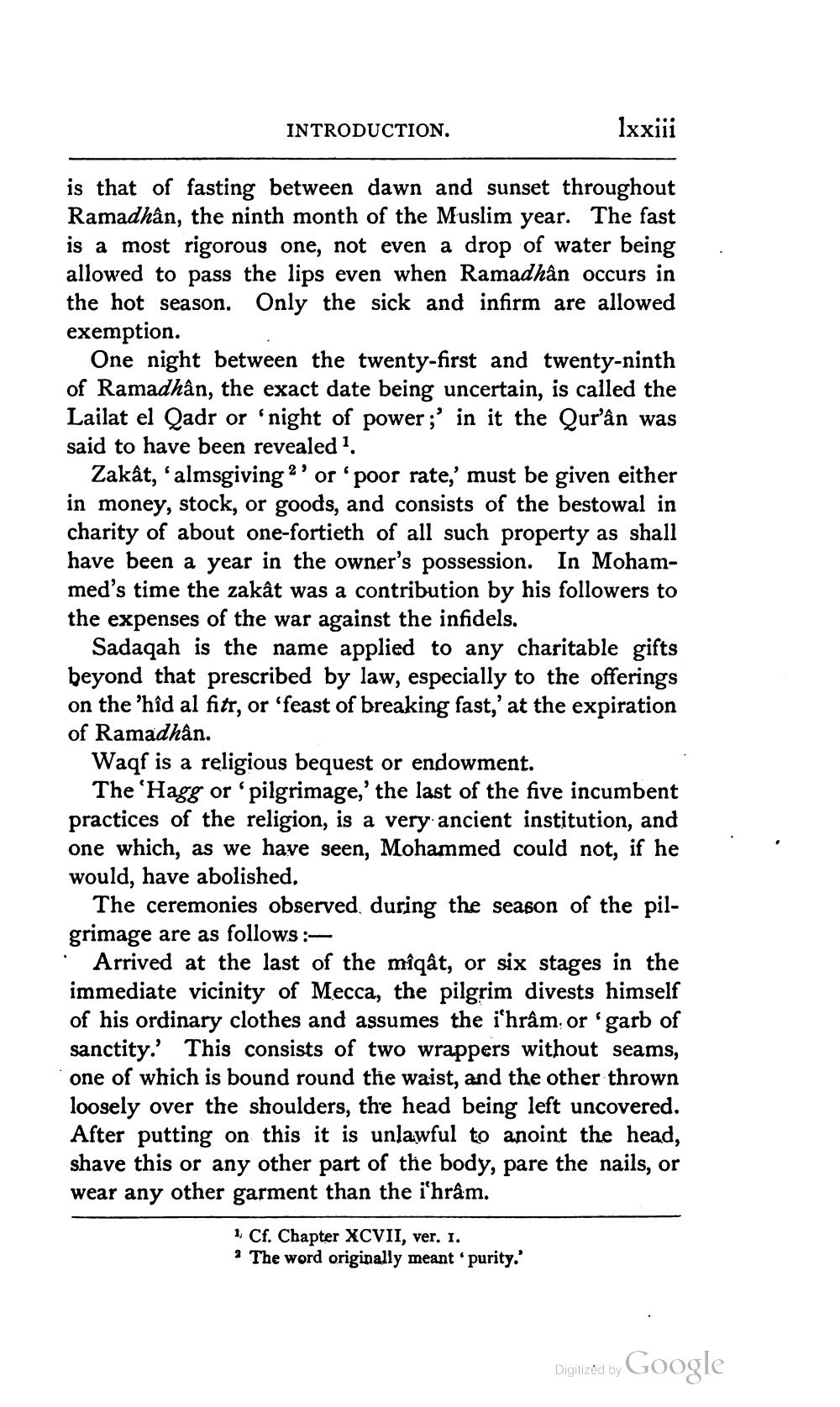________________
INTRODUCTION.
lxxiii
is that of fasting between dawn and sunset throughout Ramadhân, the ninth month of the Muslim year. The fast is a most rigorous one, not even a drop of water being allowed to pass the lips even when Ramadhân occurs in the hot season. Only the sick and infirm are allowed exemption.
One night between the twenty-first and twenty-ninth of Ramadhân, the exact date being uncertain, is called the Lailat el Qadr or 'night of power;' in it the Qur'ân was said to have been revealed".
Zakât, 'almsgiving2' or 'poor rate,' must be given either in money, stock, or goods, and consists of the bestowal in charity of about one-fortieth of all such property as shall have been a year in the owner's possession. In Mohammed's time the zakât was a contribution by his followers to the expenses of the war against the infidels.
Sadaqah is the name applied to any charitable gifts beyond that prescribed by law, especially to the offerings on the 'hîd al fitr, or 'feast of breaking fast,' at the expiration of Ramadhân.
Waqf is a religious bequest or endowment.
The 'Hagg or pilgrimage,' the last of the five incumbent practices of the religion, is a very ancient institution, and one which, as we have seen, Mohammed could not, if he would, have abolished.
The ceremonies observed during the season of the pilgrimage are as follows :· Arrived at the last of the miqât, or six stages in the immediate vicinity of Mecca, the pilgrim divests himself of his ordinary clothes and assumes the i'hrâm: or'garb of sanctity. This consists of two wrappers without seams, one of which is bound round the waist, and the other thrown loosely over the shoulders, the head being left uncovered. After putting on this it is unlawful to anoint the head, shave this or any other part of the body, pare the nails, or wear any other garment than the i hrâm.
1 Cf. Chapter XCVII, ver. 1. ? The word originally meant purity.'
Digitized by Google




